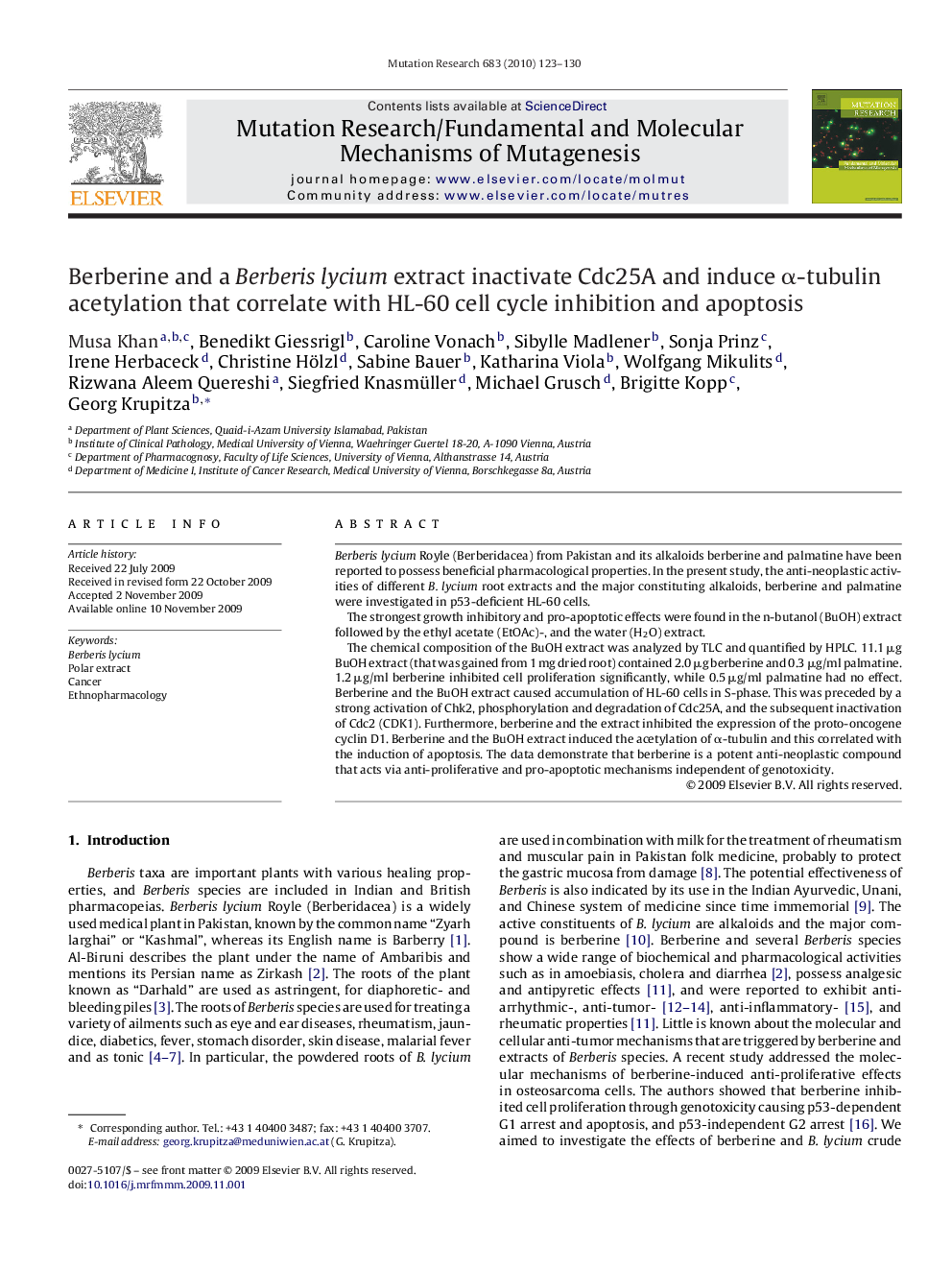| Article ID | Journal | Published Year | Pages | File Type |
|---|---|---|---|---|
| 2146800 | Mutation Research/Fundamental and Molecular Mechanisms of Mutagenesis | 2010 | 8 Pages |
Berberis lycium Royle (Berberidacea) from Pakistan and its alkaloids berberine and palmatine have been reported to possess beneficial pharmacological properties. In the present study, the anti-neoplastic activities of different B. lycium root extracts and the major constituting alkaloids, berberine and palmatine were investigated in p53-deficient HL-60 cells.The strongest growth inhibitory and pro-apoptotic effects were found in the n-butanol (BuOH) extract followed by the ethyl acetate (EtOAc)-, and the water (H2O) extract.The chemical composition of the BuOH extract was analyzed by TLC and quantified by HPLC. 11.1 μg BuOH extract (that was gained from 1 mg dried root) contained 2.0 μg berberine and 0.3 μg/ml palmatine. 1.2 μg/ml berberine inhibited cell proliferation significantly, while 0.5 μg/ml palmatine had no effect. Berberine and the BuOH extract caused accumulation of HL-60 cells in S-phase. This was preceded by a strong activation of Chk2, phosphorylation and degradation of Cdc25A, and the subsequent inactivation of Cdc2 (CDK1). Furthermore, berberine and the extract inhibited the expression of the proto-oncogene cyclin D1. Berberine and the BuOH extract induced the acetylation of α-tubulin and this correlated with the induction of apoptosis. The data demonstrate that berberine is a potent anti-neoplastic compound that acts via anti-proliferative and pro-apoptotic mechanisms independent of genotoxicity.
